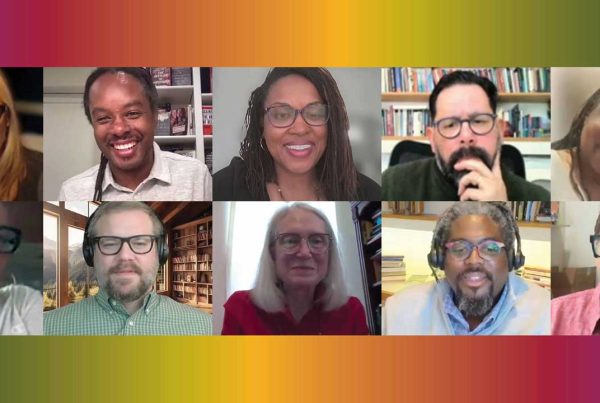The Trauma of Fear
by Tonya Schrougham
CTS Student Council President, MDiv/MACMHC Student, CMHC Intern
Fear is a powerful emotion. It taps into a primal place in ways that many other emotions do not. It is linked to our survival instincts. It warns and protects us while simultaneously being unpredictable and at times unreliable. In nature we discuss fear in terms of fight, flight, or freeze. In society we often celebrate an ability to ignore the fear responses and push through regardless. Fear at its core is intended to be a fleeting response. It is a reactionary emotion intended to remove us from immediate danger. It is the motivation for a deer or rabbit to escape a predator. It is the human response that enables us to remove ourselves from threatening and potentially harmful situations.
As I have sat with the idea of fear in relation to the current attacks against the LGBTQIA+ community, I am struck by the fear on both sides. The attacks themselves come from a place of deep fear. A fear that a group of people are losing their power. They are at risk of losing their uniqueness that has made them feel special, powerful, and significant. The fear seems to really drive a fight response, compelling them to aggressively go after what threatens their sense of safety. The perspective of the other does not matter when survival instincts are triggered.
The other side of fear is the lived LGBTQIA+ experience. Aggressive survival instincts produce fear responses from those toward whom the aggression is being directed. The fear responses in this group appear to be much more diverse and arguably more traumatizing. There are those that push back in the form of protests, filibusters, and using their voices across social media platforms. There are others that freeze. They hide their true selves or in the case of minors in states where trans care is under attack, they are forced to conform to a social norm rather than having autonomy and significance. Their exploration of who they are is halted either by their own fear at the hostile environment or by government overreach into their personal and family life. Then, there are those that survive by flight. This becomes a particularly challenging fear response as safe places vary greatly. Economic considerations might make actual flight not feasible so it can heighten the sense of threat. Regardless of the specific response triggered, however, the end result for this community becomes an extended experience of the fight, flight, or freeze response.
A 2020 article from Harvard Medical School explored the stress response related to extended experiences of the fight or flight response. The article points out that research related to the physical effects shows an increase in blood pressure, increased risk of blood clots, and potential brain changes. Psychologically, those brain changes can contribute to anxiety, depression, and addiction. The psychological impacts are such that increased risk of suicide is a given the longer an individual is suspended in the fear response.
Three techniques the article suggests to counter stress that may impact both physical and psychological health are Relaxation, Physical Activity, and Social Support. In the context of what can feel like a battle at times, relaxation can seem borderline ridiculous, but it can be so important. A great resource for some practices that will contribute to self-compassion and help with relaxation are available at www.self-compassion.org. Physical activity doesn’t always need to be a trip to the gym. Time in nature can be incredibly helpful in addressing both the physical activity and relaxation component. And last, but probably most important is the social connection. Whether we are part of the LGBTQ+ community or consider ourselves an ally, social connection is key to survival. We need others. Check on your friends. How can you offer support in ways that are true to you? Remember, not all of us lead protest marches, although that is important. Some of us sit on buses and quietly, calmly refuse to move. Some of us run for political office and determinedly engage in a filibuster. Community can have an incredible impact on the mental health of the individual. When we feel that we are part of something and have others that genuinely see us it can be life giving and lifesaving.
References:
Understanding the stress response. Harvard Health. (2020, July 6). Retrieved March 17, 2023, from https://www.health.harvard.edu/staying-healthy/understanding-the-stress-response






